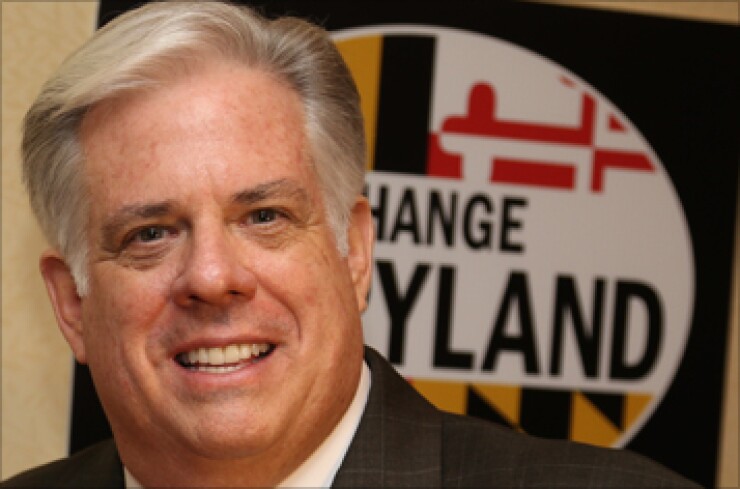
DALLAS – Maryland lawmakers have overridden Gov. Larry Hogan’s veto of a bill that requires transportation planners to evaluate road and transit projects before including funding for them in the state budget.
The Maryland Senate reversed Hogan’s April 1 veto by a vote of 29-17 on Friday, one day after the House of Delegates overrode the veto 88-52. The legislature’s 90-day session ended at midnight Monday.
The legislation creates a nine-point ranking system that the Maryland State Highway Administration and the Maryland Transit Administration must use each year in evaluating and ranking transportation projects that cost more than $5 million.
The projects would be included in the state’s comprehensive six-year transportation program, which is updated annually, based on the scoring. The current transportation program calls for $15.7 billion of spending through fiscal 2021.
The nine factors include cost effectiveness and return on investment, economic prosperity, system preservation, safety, and equitable access to transportation.
The original bill was amended to allow the Maryland DOT to determine the weight given to each of the nine goals and to further define the specifics of the criteria.
The Maryland DOT can include funding for a lower-ranked project, but the state transportation secretary must provide a written explanation to the General Assembly that outlines the reasons for selecting the project.
The existing system of selecting projects that is being supplanted by the new legislation enabled governors and their transportation secretaries to include or remove transportation projects in the six-year plan from the annual executive budget submitted to the General Assembly.
Hogan, a Republican who was elected in 2014 on a platform of favoring the funding of highways over transit, killed the $3 billion Red Line light-rail project in Baltimore last year because he said it was too expensive.
In his veto message, Hogan said the 18-page bill was an effort by Democrats in the legislature to usurp the governor’s powers.
“In the context of numerous bills considered this session to erode the long-established powers of Maryland's Executive Branch, House Bill 1013 infringes upon the Maryland Department of Transportation’s authority for identifying priorities in local jurisdictions throughout the state,” Hogan wrote.
“Put simply, this bill is just bad public policy.”
The measure will result in the funding of more transit projects in populous, urbanized counties, Hogan said in his lengthy veto message.
“For example, if Montgomery County had 50 transportation projects, the county would submit every project and most of these projects (transit and urban focused) would generally score higher than projects in other parts of the state because of the population multiplier required under the bill,” he said.
Brooke Lierman, a Democrat from Baltimore who led the floor debate on the bill in the House of Delegates, said the new system would assure taxpayers that the state is funding appropriate projects.
“The political rhetoric against this bill is designed to concern and scare people about its effects on important transportation projects,” she said. “In reality, this bill will provide more transparency in how transportation funding decisions are made.”
Hogan spokeswoman Shareese Churchill said after the veto was overridden that the governor maintains his opposition to the project-scoring measure.
"The General Assembly's decision to add a thick and nasty layer of bureaucracy to the state's transportation decisions does nothing to move Maryland forward and only harms local government and hardworking taxpayers," she said. "The only people celebrating this vote are out of touch legislators and the lobbyists who bent their arms."





